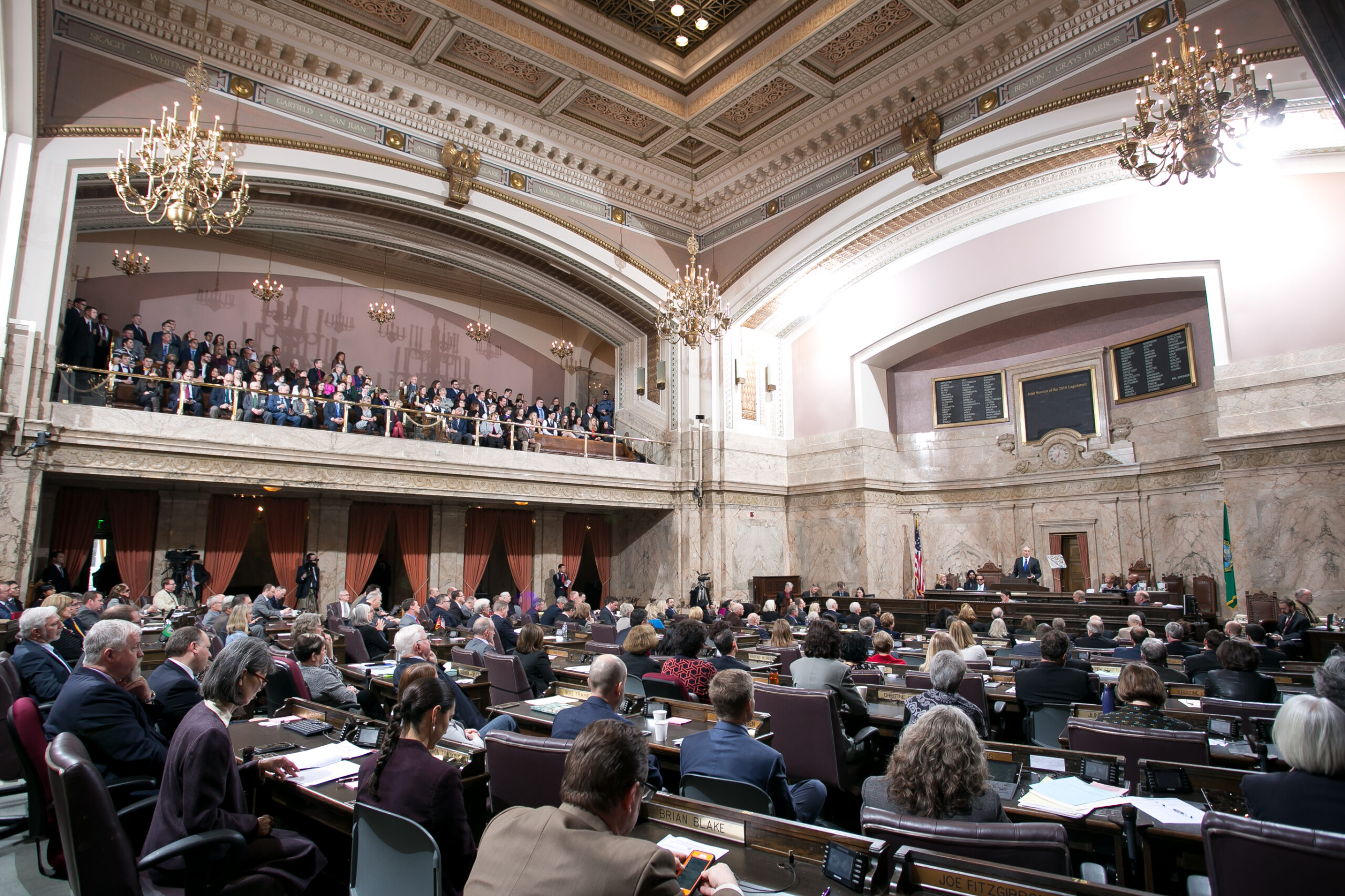In a victory for open government, transparency, and accountability, the Washington State Supreme Court has ruled that individual legislators are subject to the Public Records Act (PRA) and therefore may not withhold emails and documents from journalists, activists, or any other member of the public.
“We hold that under the plain meaning of the PRA, individual legislators’ offices are ‘agencies’ subject to the PRA’s general public records disclosure mandate because they are included in the definitional chain of ‘agency,’ as illuminated by the closely related former RCW 42.17A.005,” wrote Justice Susan Owens in the court’s lead opinion, also signed by three other justices.
“We further hold that the senate, the house, and the legislature are not ‘agencies’ because the institutional legislative bodies are not included in the definitional chain of ‘agency,’ nor were they at any point. Accordingly, we affirm the trial court and remand for further proceedings,” Owens’ opinion concludes.
Owens was joined by three colleagues for the lead opinion (a plurality of the Court): Mary Fairhurst, Charlie Wiggins, and Barbara Madsen.
The Court’s other five justices concurred in part and dissented in part.
“Because I believe the legislature is a state agency subject to the PRA, and the statute delegating responsibility to the secretary and the chief clerk in administering the preservation of certain classes of legislative records is narrow, I cannot accept the lead opinion’s conclusion that the legislature, including its bicameral bodies and other offices, are not subject to the broad mandate for open government,” wrote Justice Debra Stephens.
“Instead, I would hold that the legislature as an institution, just like individual legislative offices, is subject to the PRA and must comply with its provisions requiring disclosure of nonexempt public records,” Stephens concluded.
Stephens’ concurrence and dissent was signed by fellow Associate Justices Mary Yu and Charles Johnson. (Stephens will in a few days become the Court’s next Chief Justice, succeeding Mary Fairhurst, who is retiring.)
Justices Sheryl Gordon McCloud and Steven Gonzalez reached a different conclusion. Accordingly, McCloud wrote a separate concurrence and dissent.
“The PRA requires every ‘agency’ to ‘make available for public inspection and copying all public records.’ RCW 42.56.070(1). I agree with the lead opinion that the legislature is not such an ‘agency,’ ” McCloud wrote.
“It is the legislative branch of government, and it is subject to the more limited disclosure requirements that the PRA places on that branch.”
“But I disagree with the lead opinion’s conclusion that individual legislators constitute ‘agencies’ that are subject to the broader disclosure requirements of other parts of the PRA. The lead opinion’s conclusion on that point is based on a definition of ‘agency’ in a separate statute in a different chapter of the code.”
Read the lead opinion and the concurrences/dissents:
Supreme Court ruling on Public Records Act complianceHouse Speaker-designate Laurie Jinkins responded to the ruling shortly after its release by the Supreme Court, pledging compliance.
“House Democrats believe in open and accountable government,” Jinkins said in a statement sent to NPI. “While we have already taken action toward better access to public records, we have more work to do. We are still reviewing the Court’s decision to determine its specific impacts, and will work with our colleagues in the House and Senate to move forward on implementing the decision to ensure transparency in government for Washingtonians.”
“We are still reviewing the court’s decision, but as I’ve said throughout this process, I believe the Legislature should continue to take steps toward greater transparency,” said Senate Majority Leader Andy Billig in a statement.
“Long before this decision came down, we started establishing an institutional infrastructure to help respond to public records requests, store documents and take other measures to increase public access,” Billig added.
“We will be working with Senate administration and legislators in the coming days and weeks to ensure compliance with this decision.”
The case pitted Washington State’s media outlets against its Legislature. The coalition of plaintiffs asserted that the Legislature was improperly withholding records that are subject to the Public Records Act. The Legislature argued that it was exempt from the Act. Thurston County Superior Court Judge Chris Lanese found otherwise and ordered the Legislature to comply with the Act.
The Supreme Court has now affirmed that ruling.
The Legislature was represented in the case by Pacifica Law Group and former Justice Gerry Alexander. Allied Law Group represented the plaintiffs, who became the respondents upon the filing of the appeal. Amicus briefs were filed by a number of organizations, including the American Civil Liberties Union, Washington Coalition for Open Government, and Reporters Committee for Freedom of the Press.
NPI supports the Supreme Court’s ruling. As this post’s opening paragraph states, it’s a victory for open government, transparency, and accountability.
We do think Washingtonians could benefit from an amendment to the Public Records Act that explicitly declares that the Legislature and executive department offices are subject to it, and we suggest that the Legislature create and fund additional staff positions to empower our representatives and senators to timely comply with their obligations under the Act. Let there be sunlight!

